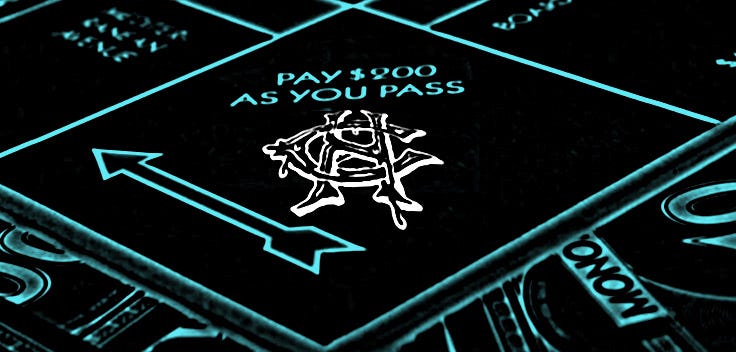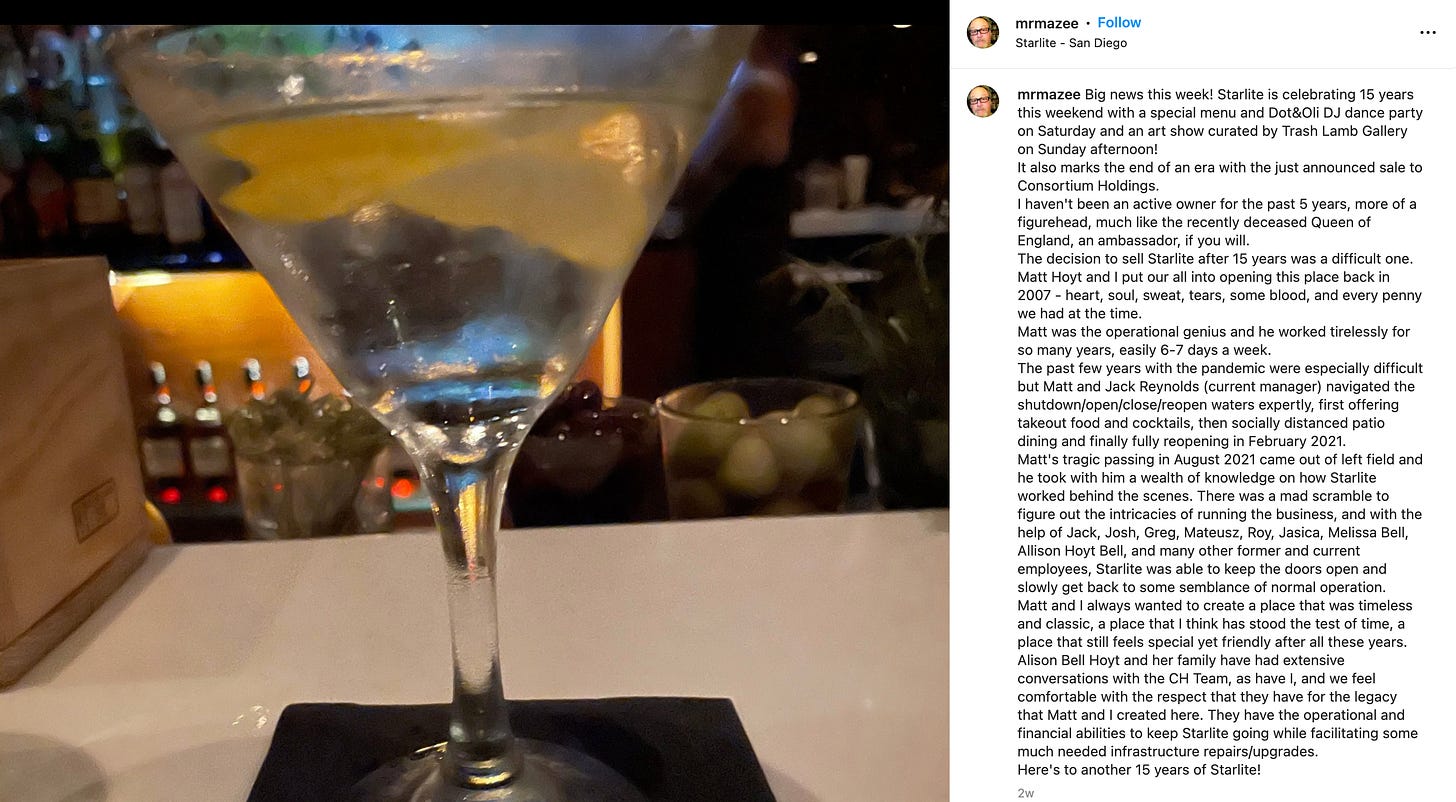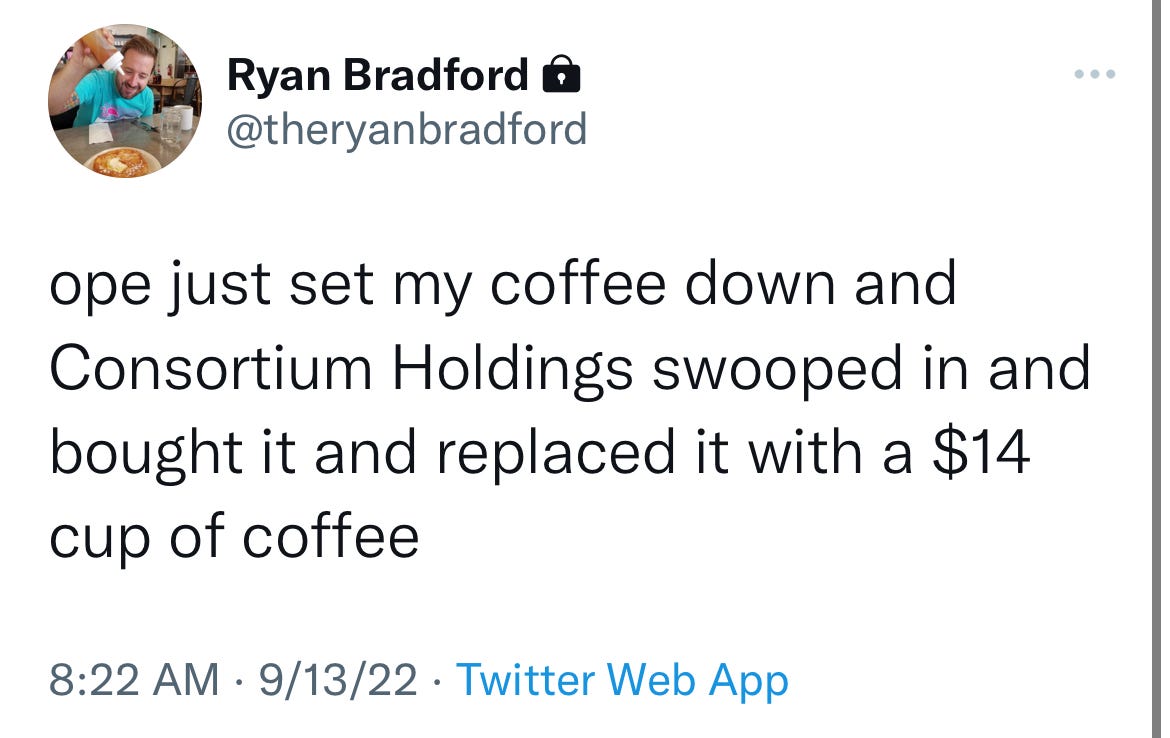We all have a friend who is the last to leave the party. It’s not the worst offense, but after a few times, it begins to wear you down. Perhaps they think they’re the life of the party, or maybe they can’t read the social cues—whatever the case, it stirs resentment, which sucks because they are, indeed, a friend.
After enough incidents, you just stop inviting them to parties. You no longer want to deal with the awkward hints, the strained insinuations—you just want your friend to get the message. You’re not ending the friendship over it because doing so would be fickle. But you’re also human, and you can’t help how you feel.
This inability to read the room is pretty much the basis for capitalism. I doubt there are many business owners in America’s economic system who’ve ever said, “It’s been a good party, but I’m done. I don’t need to grow. I’m happy with how much money I make, so I’m going to head out.”
I know it's a false equivalency to compare human relationships to business models, but when a company’s MO seems to be latching onto the emotional and nostalgic connections that people have with legacy institutions, it’s hard to distinguish between capitalistic growth and toxic human behavior.
I’m talking about Consortium Holdings.
A few weeks ago, the restaurant group announced plans to take ownership of Starlite—the popular Middletown restaurant that was co-owned by beloved San Diego artist Matt Hoyt, who sadly passed away last year. Although I wasn’t close to Matt, I know many people who were close friends of his, and the way they talk about him is nothing short of profound. I had, however, been to Starlite numerous times, and it was always a delight. It felt elegant and comfortable in the same way that a small neighborhood Italian restaurant in Brooklyn feels. It was romantic without being ostentatious. Everytime I went there, I saw Matt circulating from table to table, genuinely interested in his customer’s experiences.
Because Matt and Starlite meant so much to people, of course there was going to be passionate outcry about the Consortium Holdings (CH) news. The pushback prompted one of Starlite’s other owners Tim Mays to make a statement on Instagram, assuring everyone that whatever CH’s plans are, they will respect Starlite’s legacy.
No shade to any of Starlite’s owners over this outcome. It’s naive to believe that the restaraurant as we know it could, or should, continue without Matt. It shouldn’t be embalmed in amber just to appease loyalists. But like many others, the Consortium Holdings news left me feeling a little deflated.
Even if you don’t know anything about Consortium Holdings, there’s a good chance that you’ve been to one of their restaurants or bars and been impressed with it. To be fair, CH is excellent at what they do. Go into Polite Provisions, False Idol, or the new Part Time Lover, and, honestly, there’s a feeling of enchantment. CH establishments have that Disneyland-like quality of being immersive experiences where you sort of forget the outside world exists.
But you can’t go to a Consortium business without significantly lightening your wallet. These places are fucking expensive. Who has the money to go to one on the reg?
In contrast, it was possible to be regular at Bar Pink, where the cheap drinks and eerie retro-kitsch made it feel like North Park hadn’t gone full-blown Pigment (please hold strong, Redwing and Blue Foot). But then CH bought Bar Pink and turned it into the Tokyo-record-bar-inspired Part Time Lover. I recently had a drink at Part Time Lover, and the whole time I wondered who would make it their spot. Yes, it was impressive, but when one drink costs nearly as much as an hour of minimum-wage work, where’s the incentive to return? I like aesthetics as much as the next bro, but not that much. Like my grief with expensive beers, it seems that CH can set their prices just because mofos are willing to pay that much, but I don’t have a lot of desire to go back, and it gives me one less reason to visit a neighborhood I used to love. BTW, RIP Bar Pink.
Oh and let’s not forget the ridiculous membership-based The Reading Club on the rooftop of InterContinental Hotel in Downtown, which requires an application to join, plus a $2,000 annual fee. For that price, what do people do there? Is it a club where people just constantly shout “fuck money!” I imagine politicians rubbing elbows with venture capitalists while buying NFTs on their phones because they’ve already chosen a path of stupid spending so why stop now? It’s embarrassing to realize that places like The Reading Club can exist amidst San Diego’s homeless crisis, and I’d wager that many tasked with solving it are Reading Club members themselves.
Bar Pink, Starlite, and The Reading Club are only a few of the latest projects that CH has developed. It seems that in the last few years—since the start of Covid—the restaurant group has set out on an aggressive manifest destiny, scooping up iconic properties left and right, including North Park’s famous Lafayette Hotel. And there are plenty more projects in development. SanDiegoVille recently chronicled all this expansion, and it’s worth taking a look.
Whenever I bring up grievances about Consortium Holdings, people are quick to point out that they’re a San Diego small business success story, which can’t be ignored. Consortium’s current monopoly couldn’t have been possible without having their finger on the button of what San Diegans want. And I will absolutely refute any claims that Consortium Holdings is responsible for gentrification, which seems to be a common accusation. For one, businesses don’t cause gentrification—they just go where it’s happening. It’s also long been a condescending and insulting belief that low-income communities or communities of color don’t want or deserve fancy things.
Perhaps what infuriates me so much about CH’s recent acquisitions is that it feels like they’re preying on properties that already have so much built-in emotional resonance for many, like, “hey, we know that we bought a place you loved, made it fancy, and inflated the prices to tech-bro levels, but that doesn’t mean we can’t be friends!” At best, it feels exploitative; at worst, vulture-ish. It’s like, bros, please just slow your roll. You’re doing great, but take the hint. Know when to settle down. Know when to leave the party.
Got a tip or wanna say hi? Email me at ryancraigbradford@gmail.com, or follow me on Twitter @theryanbradford. And if you like what you’ve just read, please hit that little heart icon at the end of the post.







I agree with everything you’re saying here. Did you happen to read about businesses in Japan that are over 100 or even 1000 years old? The NYT did a great piece during the pandemic about how these businesses survive and the contrast to why many businesses in America seemed to be failing. Guess what? They don’t aspire to constant growth. Instead, when they hit a certain point at which they run comfortably, they save earnings in case of disasters or other unforeseen expenses. Just sayin.
RIP Bar Pink Indeed. 2 dollar Tecates + limes. DJs spinning random nights and walking into cramped concerts. The friggin' lazer light that always got in your eye if you tried to dance. I don't want to be one of those 'back-in-my-day' groaners, but let's just take a moment to pour one out for a cool place.